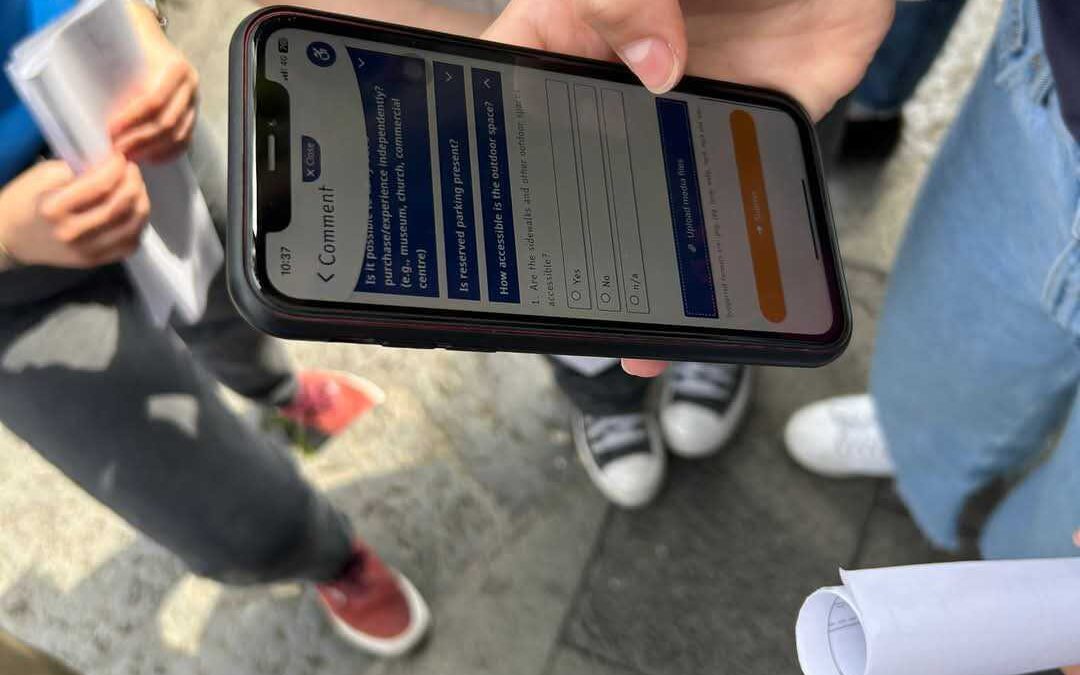The lack of accessibility is the main factor of exclusion of people with disabilities. It is reported that “27% of the EU population over the age of 16 had some form of disability”.
“Having access to information, knowing where we can go, is very important for planning our day-to-day lives” – Salvador Mendes de Almeida, Founder and President of Associação Salvador, an association which operates in the field of physical disabilities. Over time, it has developed different and ambitious projects that have had excellent results and demonstrated impact on improving the integration and quality of life of countless people with disabilities.
Addressing accessibility is a critical step toward creating inclusive societies. Accessibility challenges often translate into daily struggles for individuals with disabilities, limiting their participation in education, work, leisure, and social activities. Tackling these barriers enhances independence and dignity while ensuring equal opportunities for everyone. Beyond physical barriers, a lack of information about accessibility is another significant hurdle. Empowering individuals to make informed decisions about where they can go or what they can do is transformative, fostering a sense of agency and inclusion.
The Map4Accessibility project develops a pan-European accessibility mapping app to provide information on the accessibility of public spaces across 4 European cities. The project employs service-learning to engage higher education students and other stakeholders in its community mapping practices via urban walks. Combining community engagement and academic coursework’, students learn while being actively engaged and working on a community significant issue.
The Map4accessiblity Progressive Web App (PWA) is an accessibility map which outlines the physical and web accessibility of various objects and provide precise information on accessible places at the city level. It covers accessibility standards, embeds Universal Design Principles and adds improvements to an already existing app – + Acesso para Todos (from Associação Salvador) –the foundation on which the Map4accessibility app is being built. It is co-designed and co-developed through service-learning activities with higher education students, civil engineering, social and other experts and citizens from South-West University in Blagoevgrad, University of Catania, Tuscia University, ESCP Business School, Associação Salvador, ARFIE.
Digital tools like Map4Accessibility have the potential to bridge the gap by providing actionable insights into accessibility in urban environments. With real-time information, users can confidently plan their routes, avoid obstacles, and discover accessible spaces. This not only impacts individual users but also encourages public authorities and policymakers to prioritize accessibility improvements.
Among the objectives of the app, in addition to assisting people with various abilities while navigating the urban environment, is to influence higher education institutions and cities to adopt accessibility strategies on:
- the built environment and public spaces, public facilities, and services;
- transport and related infrastructures;
- information and communication, including information and communication technologies;
- legally binding accessibility standards;
- accessibility standards in the built environment, which go beyond the legal norms.
With this application, users can classify places as accessible, not accessible or partially accessible. It uses Google Places to identify places in the environment. In addition, places or obstacles that do not yet exist in the app, can be added and rated directly. Whenever an evaluation of accessibility of a place is being made on the app, users have the option to leave an open comment and are required to answer key questions about accessibility addressing different types of disabilities.
“We’re in the middle of the 21st century, every day new inventions and technologies appear, and more barriers are broken down. We pride ourselves on hosting major international events and being a tourist destination of choice. But what about the thousands of people who remain isolated within four walls? During the lockdown, the whole world had the opportunity to experience what people with physical disabilities go through every day of their lives. Now that we’ve returned to normal life, are they going to leave us behind again? This app could be the turning point for getting more and more people involved as agents of change and volunteers for this cause.” Salvador Mendes De Almeida, Founder and President of Associação Salvador The Map4Accessibility project is not just a technological tool; it is a call to action. By highlighting the importance of accessibility and engaging communities to contribute, it empowers individuals to shape a more inclusive society. Accessibility is not a luxury but a fundamental right that transforms lives. This app, combining technology with collective responsibility, paves the way for cities and institutions to become genuinely inclusive spaces for all. As more people join this initiative, the dream of a universally accessible world can become a reality—one rating, one comment, one change at a time.
